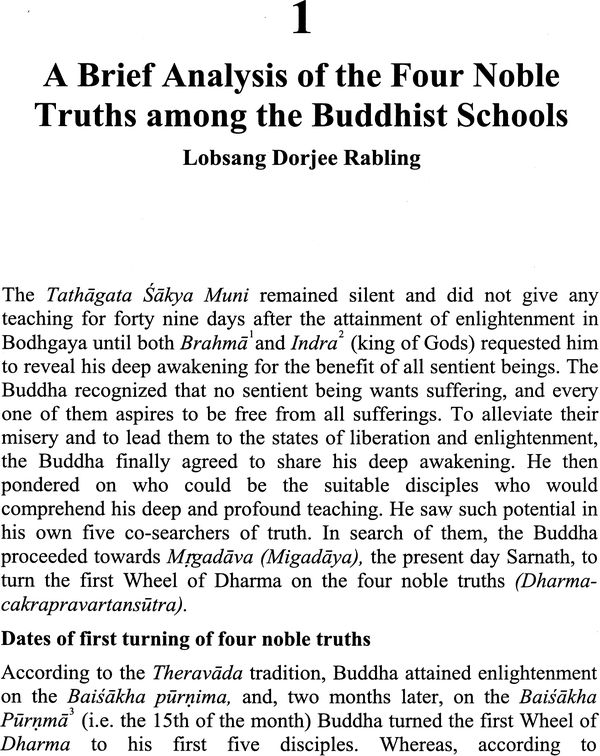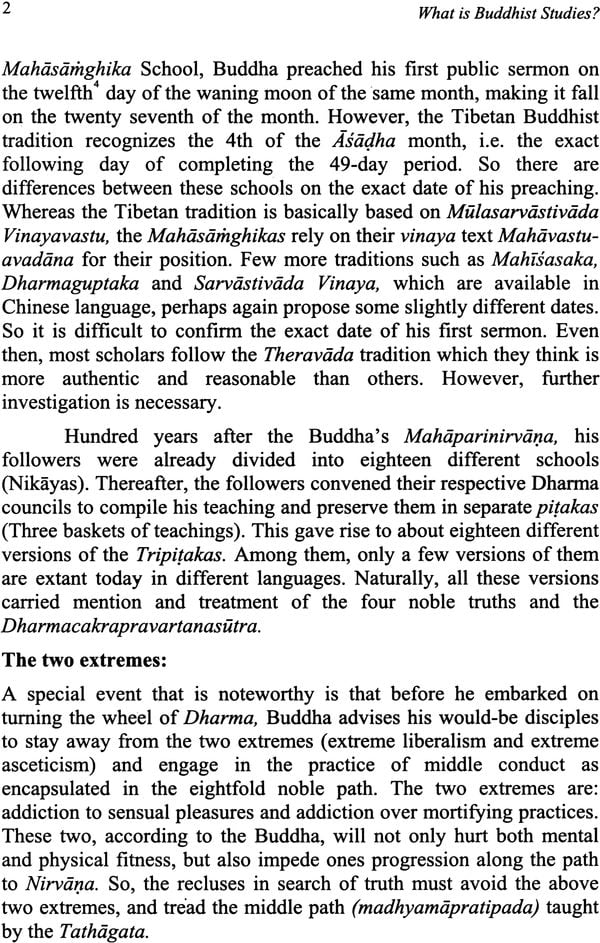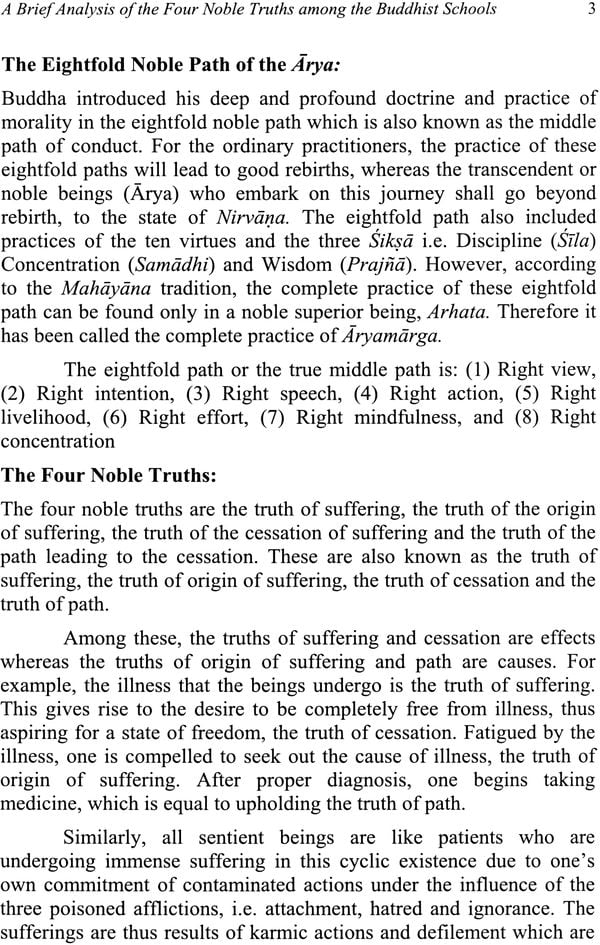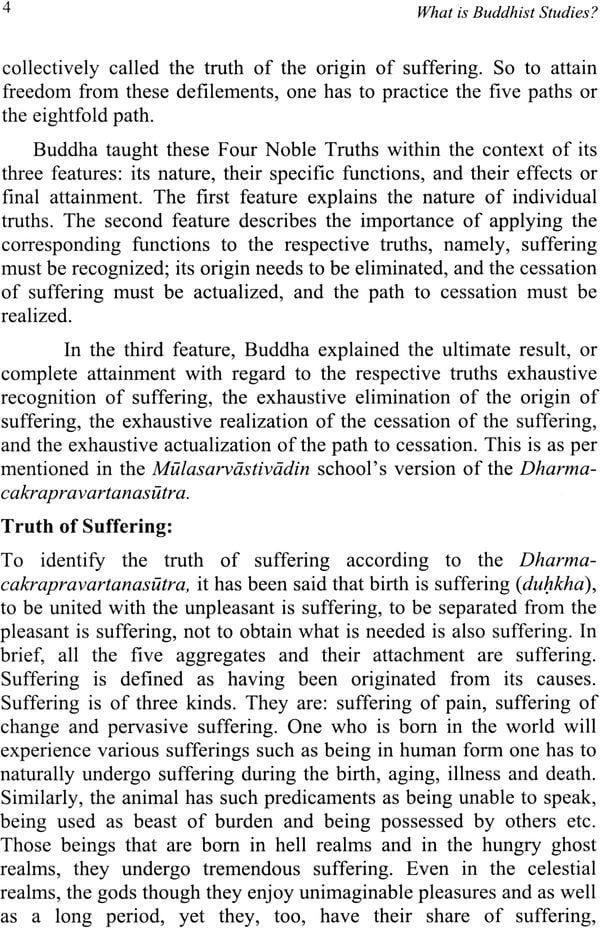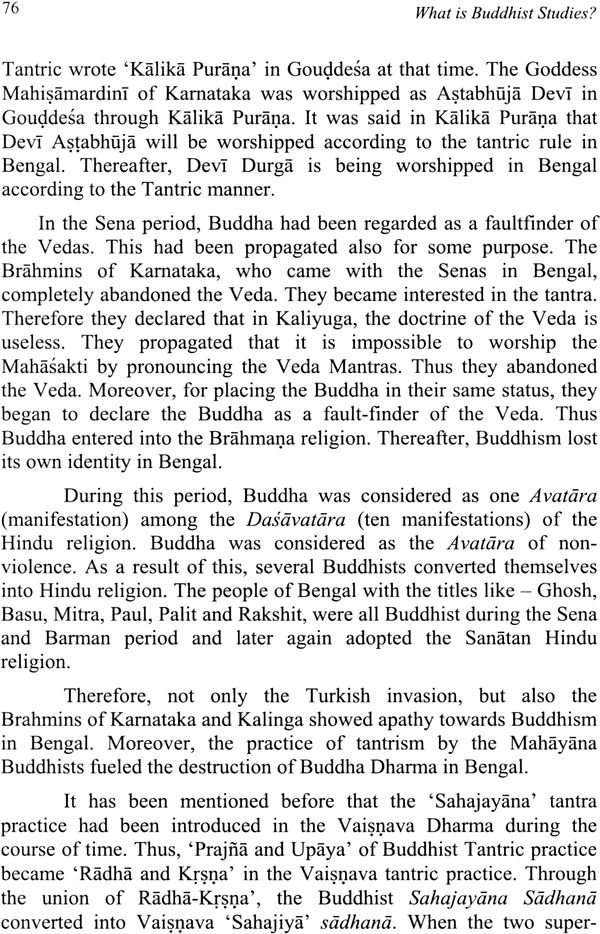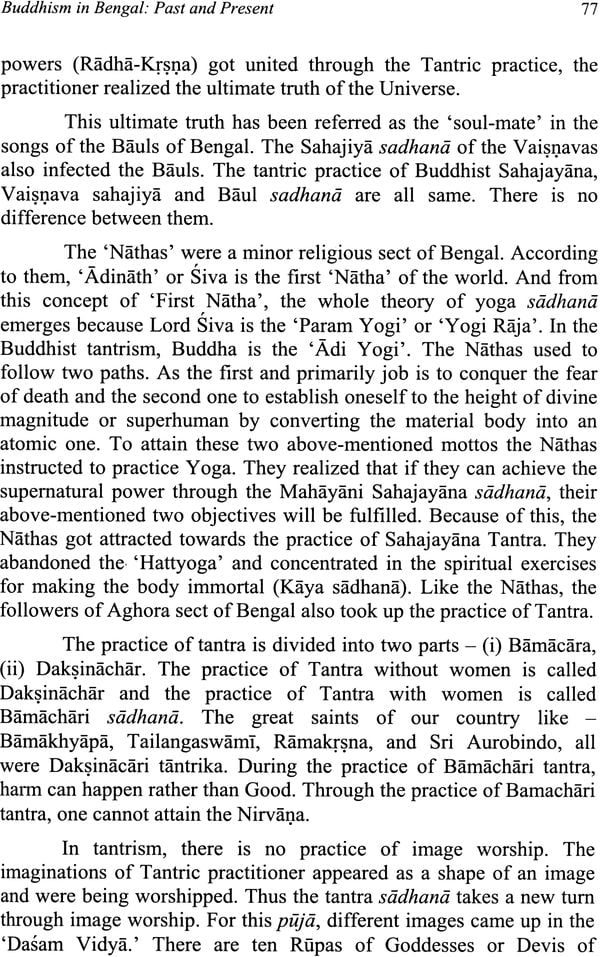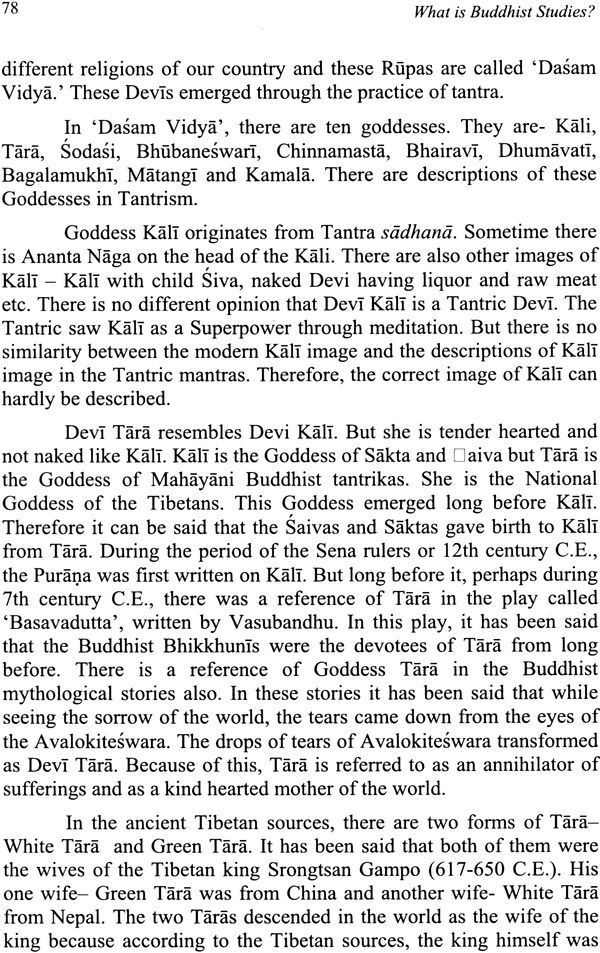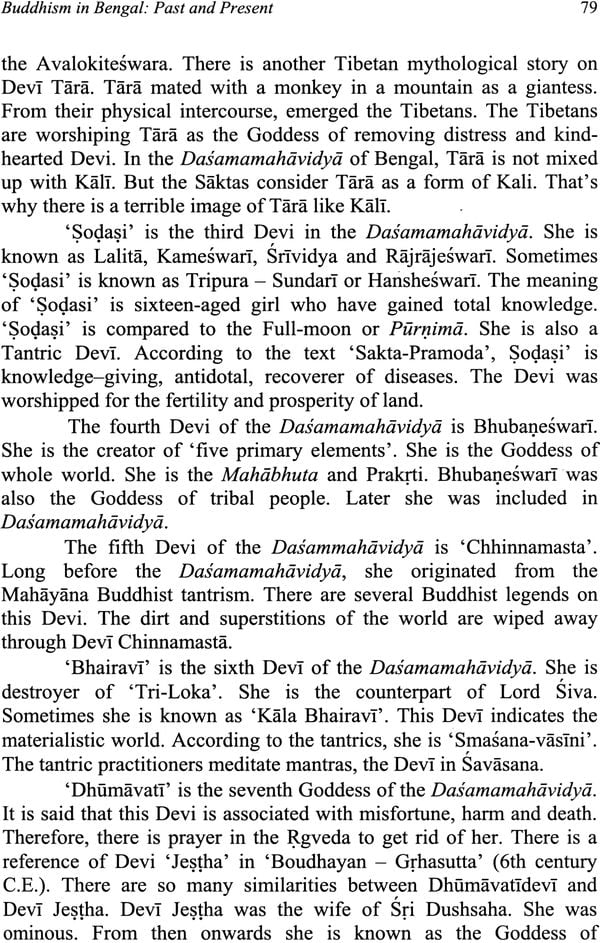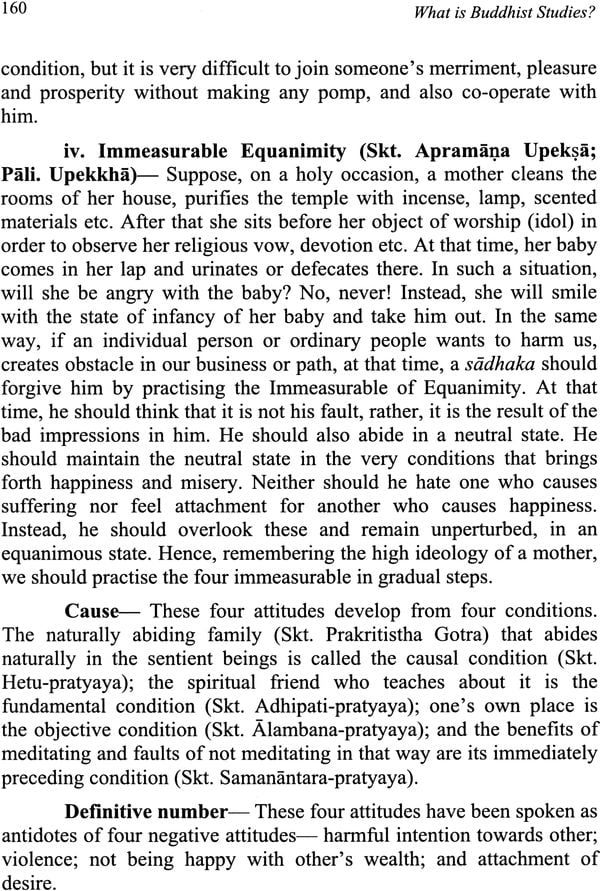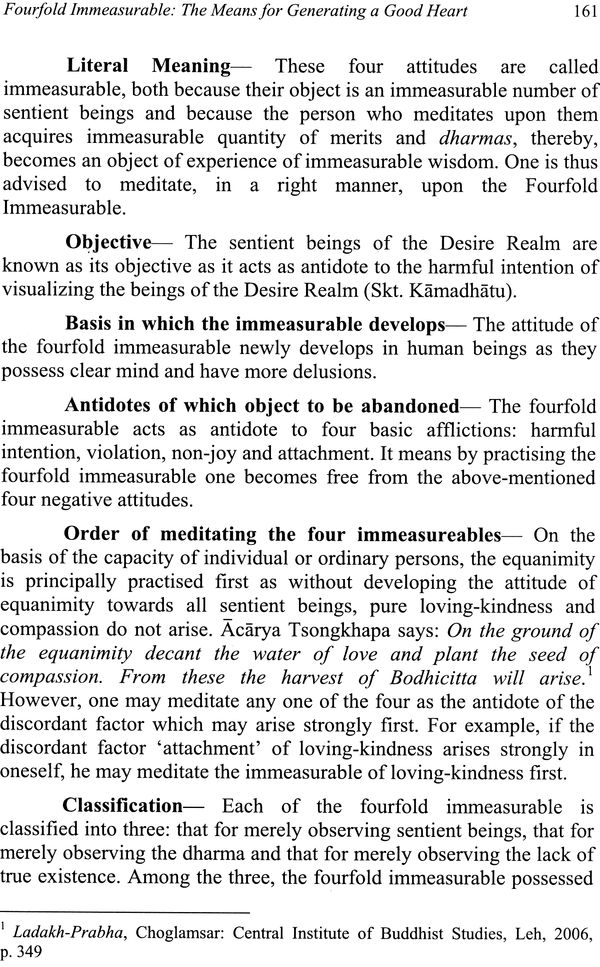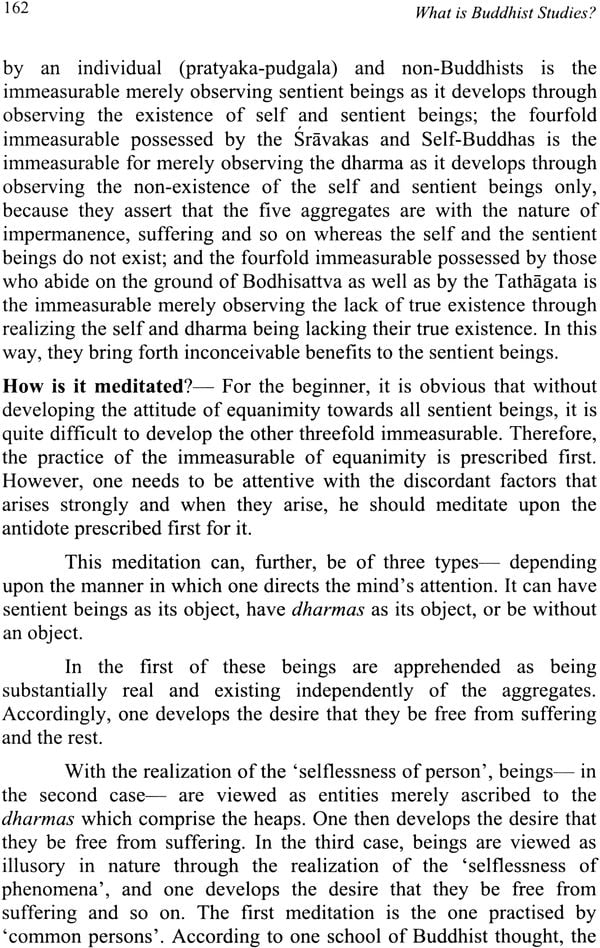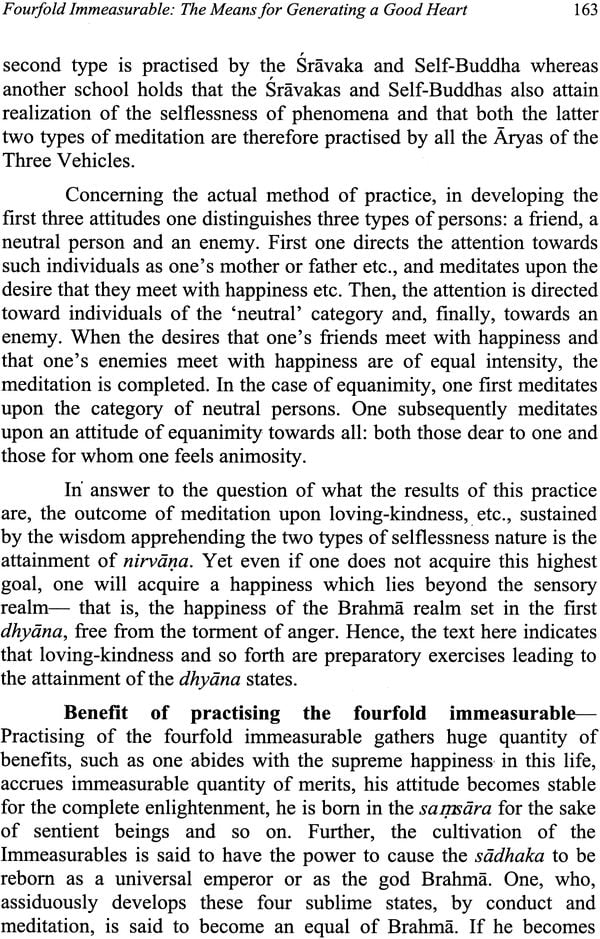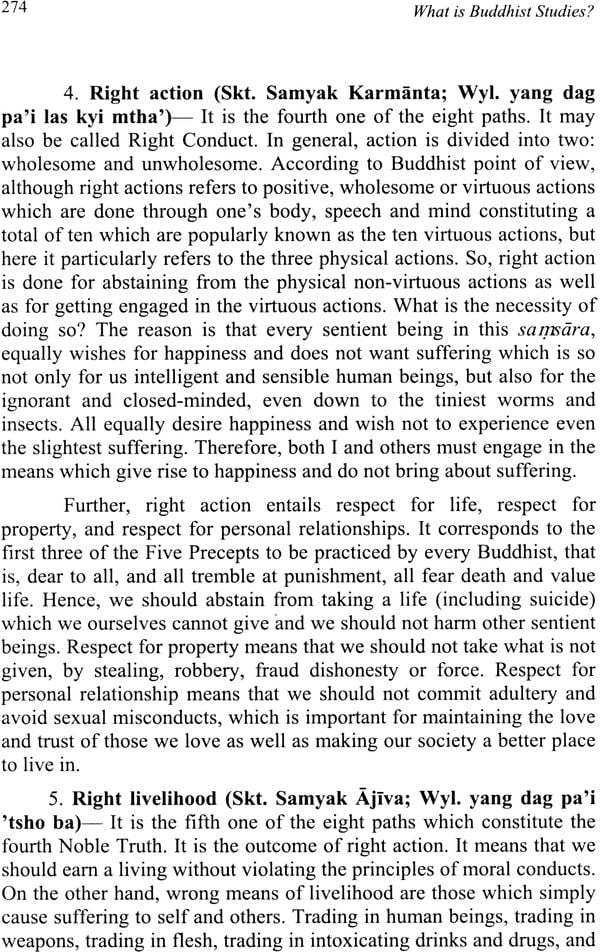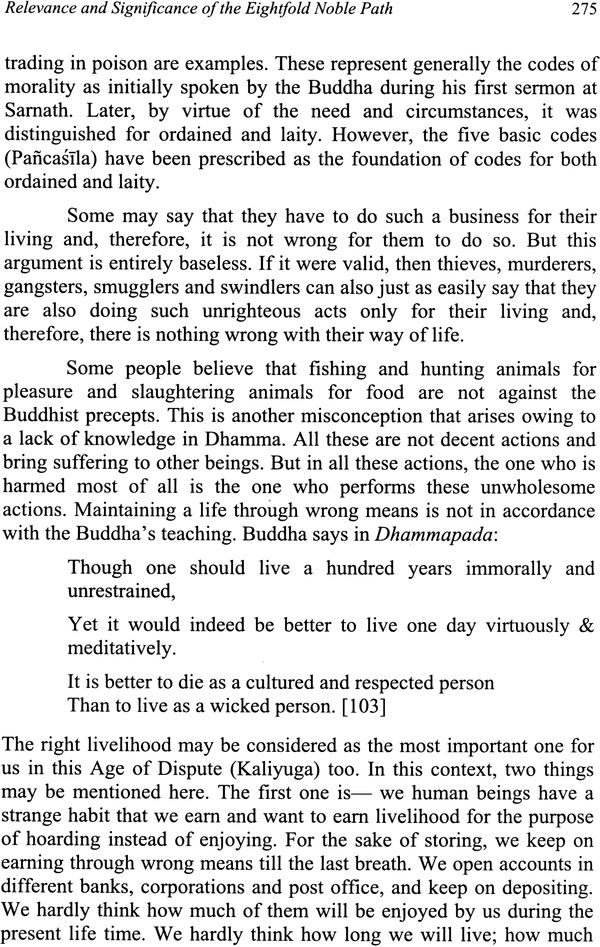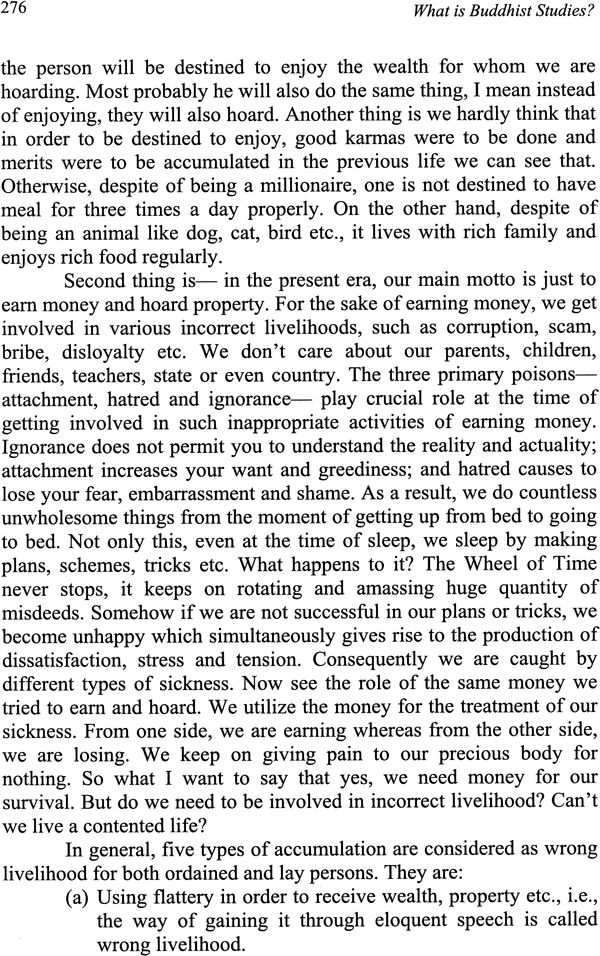
What is Buddhist Studies?
Book Specification
| Item Code: | NAN064 |
| Author: | Sanjib Kumar Das |
| Publisher: | Buddhist World Press |
| Language: | English |
| Edition: | 2017 |
| ISBN: | 9789380852607 |
| Pages: | 348 |
| Cover: | Hardcover |
| Other Details | 9.5 inch x 6.5 inch |
| Weight | 700 gm |
Book Description
The book titled 'What is Buddhist Studies?" resembles a mirror that reflects some outlines of the most important and demanding topic on the academic study of Buddhism, subsuming both Buddhist doctrine and philosophy. The aforesaid term applies to both the traditional and scientific studies. It also applies to the academic field, which is a subset of religious studies, and is distinct from Buddhist Philosophy or Buddhist theology. Hence, Buddhist Studies covers the study of the five major and five minor sciences. These sciences are interconnected like spider-web. Each one of them has its own importance and significance. Each one of them is the supplement for each other and it is done by overcoming some specific discordant factor. Seeing the importance and significance, a plan was made to bring out a publication containing the outlines of some important and significant subject of Buddhist Studies introduced by Gautama the Buddha and his authorized disciples like Nagarjuna, Asanga, Vasubandhu, Aryadeva, Santindeva and so on. Accordingly, works were carried out to collect matters for the publication. The entire matter of the said publication has been abridged in fifty articles. which have mostly been prepared by the author while few have been contributed by the eminent Buddhist scholars.
Born in a middle class in West Bengal, Dr. Sanjib Kumar Das was educated at Chandpara Nimna Buniyadi Vidyalaya (Amtala) and then in Gobardanga Khantura High School. Meanwhile. due to some of his personal problems. he fled away from home and worked as a waiter in several hotels and sweet shops for about two years in Kolkata. Later, he went to Darjeeling and took shelter in a Buddhist Monastery where he also worked as a helper of mason for about a year. There. an auspicious co-incidence carne upon in his life that also totally changed his life as well. On account of the kindness of the Thupten Sanga Ch ling Monastery. he was admitted in its branch school named 'Drukpa Kagyu Destitute Home' where he studied upto standard VIII. Subsequently, he was sent to Varanasi in 1989 in order to get admission in the then Central Institute of Higher Tibetan Studies (present CUTS). Sarnath for higher studies Getting admission, he obtained M.A. pursuing upon Buddhist Philosophy. Tibetan Language and other prescribed subjects. In 1998, he was awarded with the Kashi Naresh Gold Medal for being the best student of 1998. After completing M.A. he started doing his Ph.D. which he completed in 2002. In 1999, he was invited as a Translator from Tibetan into English to Taiwan where he stayed for about five months. In 2002, he got a temporary job in the Translation Department in the CIHTS. Sarnath and simultaneously a permanent job in Central Institute of Buddhist Studies, Leh where he worked for about six years. In 2008, he got a newjob in Visva-Bharati University. Santinlketan where he has been working on the post of Associate Professor in the Department of Indo-Tibetan Studies since he joined, Dr. Das composed, translated, edited, restored and compiled several books which have been published by different universities, institutions and publishers in India. Apart from translation, compilation, restoration and editing work, Dr. Das attended numbers of Local, National and International seminars, and presented papers.
Buddhist Studies refers to the academic study of Buddhism, subsuming both Buddhist doctrine and philosophy. The term applies to both the traditional and scientific studies. It also applies to the academic field, which is a subset of religious studies, and is distinct from Buddhist philosophy or Buddhist theology. Hence, Buddhist Studies covers the study of the five major and five minor sciences. These sciences are interconnected like spider-web. None of them can be neglected by means of underestimation. Each one of them has its own importance and significance. Each one of them is the supplement for each other and it is done by overcoming some specific discordant factor.
The Centre for Buddhist Studies, Visva-Bharati was established with the objectives of Class Lectures, Special Lectures, Documentary Film-Shows/Cultural Film-Shows, International and National Seminar / Conference /Workshop, Exhibitions, Translation and Research Projects, Publication and Short Course on Buddhist Studies under the UGC "Scheme of Epoch Making Social Thinkers in India" in 2005. However, it was able to start its activities only in 2007. In order to fulfill its goal, as per the advices of the Advisory Committee of the Centre, several eminent scholars as well as the faculty members of the Department of Indo-Tibetan Studies were invited with request during the year 2013-14 to deliver special lectures on Buddhist Studies which was accepted accordingly. Among the eminent scholars, Prof. Kalyan Bagchi, Emeritus Professor, Department of Religion and Philosophy, Visva-Bharati and Prof. Suniti Kumar Pathak, Rtd. Professor, Department of Indo-Tibetan Studies, Visva-Bharati are the main ones. It was further advised by the Board that after the completion of the lecture, the Centre, in collaboration of the Department of Indo-Tibetan Studies, might collect the lectures from the speakers concerned and then having edited them, those might be sent to some publisher for print. Accordingly, I, the former Director l/C, Centre for Buddhist Studies took the initiative in 2015 to bring out a publication containing those valuable lectures. This was the outcome of the decision that the publication successfully brought out with the blessings, good wishes and help of several good wishers.
Although the book could have been published quite long ago, but on account of some unavoidable circumstances it could not be completed on time. However, as there is a common saying, 'Better late than never.', at least we have become successful in bringing out this publication a little late.
On behalf of the Department of Indo-Tibetan Studies, first of all I would like to acknowledge my indebtness and appreciation to the higher and highest authorities of Visva-Bharati and University Grants Commission for their untiring and liberal support for organizing special lecture. I would like to thank Prof. Somdatta Mondal for her enthusiastic help in making grammatical correction of the entire matter of the book and for other valuable guidance and advice without which the book could not brought out on- time. Sh. Samrat Roy & Sh. Debjit Ghatak, students, Department of Indo-Tibetan Studies assisted in typing few articles of this book. I also thank them for their kind effort. I must not forget to express our gratitude to the authority and staff members of BWP, Delhi for their wholehearted support in publishing this book within a very short time as we requested.
| Editorial | iii | |
| List of Contributors | vii | |
| 1 | A Brief Analysis of the Four Noble Truths among the Buddhist Schools | 1 |
| 2 | A Buddhist Approach to Mind, Matter and Consciousness | 21 |
| 3 | Bhavacakra: A Descriptive Study | 35 |
| 4 | A Brief History of Tibetan Astro-science and its Compendium | 43 |
| 5 | Buddhist Epistemology | 57 |
| 6 | Buddhism in Bengal: Past and Present | 69 |
| 7 | Buddhist Ecology: A Tool to Natural Harmony | 85 |
| 8 | Buddhist Prajna and Karuna as Shedding new Light: On Some Current Political and Moral Perspective | 97 |
| 9 | Buddhist Sacred Places for Pilgrimage | 111 |
| 10 | Characteristics and Significance of Stupa | 121 |
| 11 | Cosmology Concept in Kalacakra | 137 |
| 12 | Evolution and Decline of Buddhism in China: A Brief Account | 145 |
| 13 | Fourfold Immeasurable: The Means for Generating a Good Heart | 155 |
| 14 | Four Noble Truths and Their Significance | 167 |
| 15 | How far is Buddhism significant in the Twenty-First Century? | 183 |
| 16 | Introduction to Kagyur and Tangyur: An Analytical Study | 193 |
| 17 | Introduction to Tantra in the Indian Culture | 211 |
| 18 | Nagarjuna's Intent: Analysis on the Fundamental Reality | 219 |
| 19 | Past and Future Lives: A Verifiable Fact | 237 |
| 20 | Problem of Human Society and Relevance of the Concept of Pratityasamutpada | 255 |
| 21 | Relevance and Significance of the Eightfold Noble Path | 267 |
| 22 | Significance of the Holy Occasions in the Buddha's Life | 281 |
| 23 | The Distinctive View, Meditation, Activity and the Resultant Attainment of Kagyu Lineage of Tibetan Buddhism | 289 |
| 24 | The Kayas of the Buddha | 299 |
| 25 | The View, the Meditation and the Behaviour of the Sakya School of Tibetan Buddhism | 311 |
| 26 | Theravada as Vibhajjyavada | 327 |
| 27 | Wheel of Dharma: In the Perspective of Buddhism | 337 |
